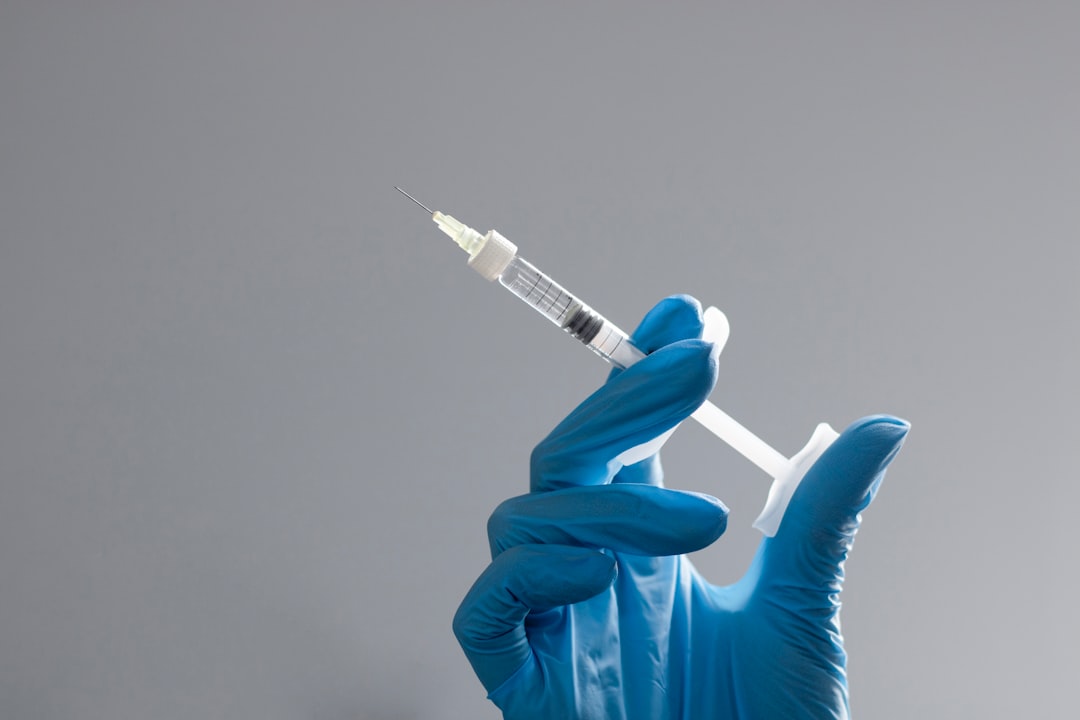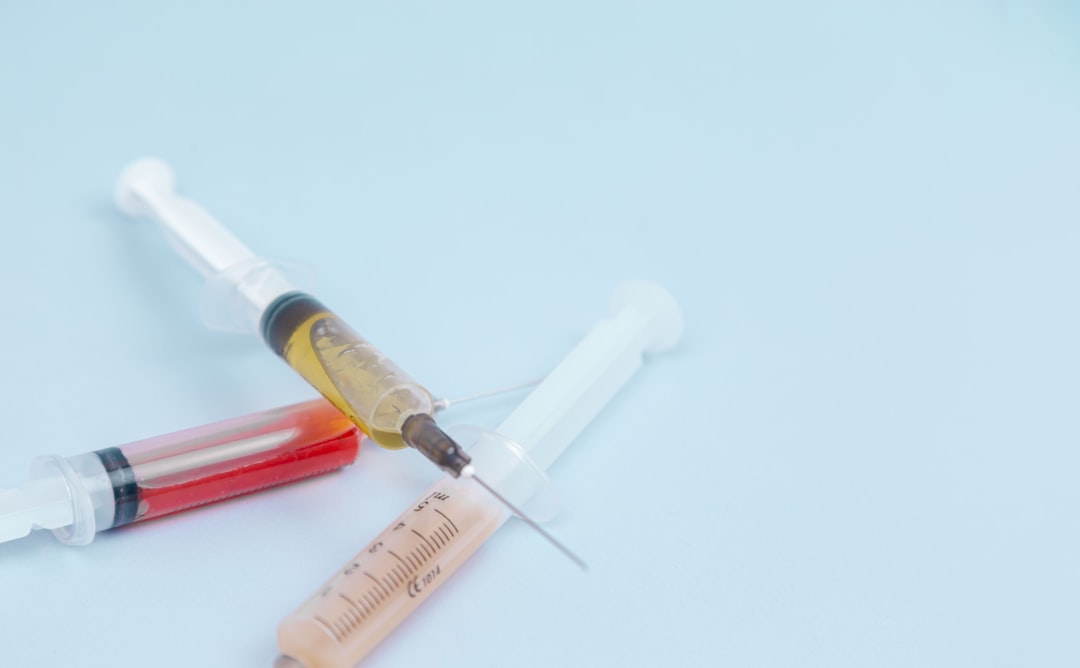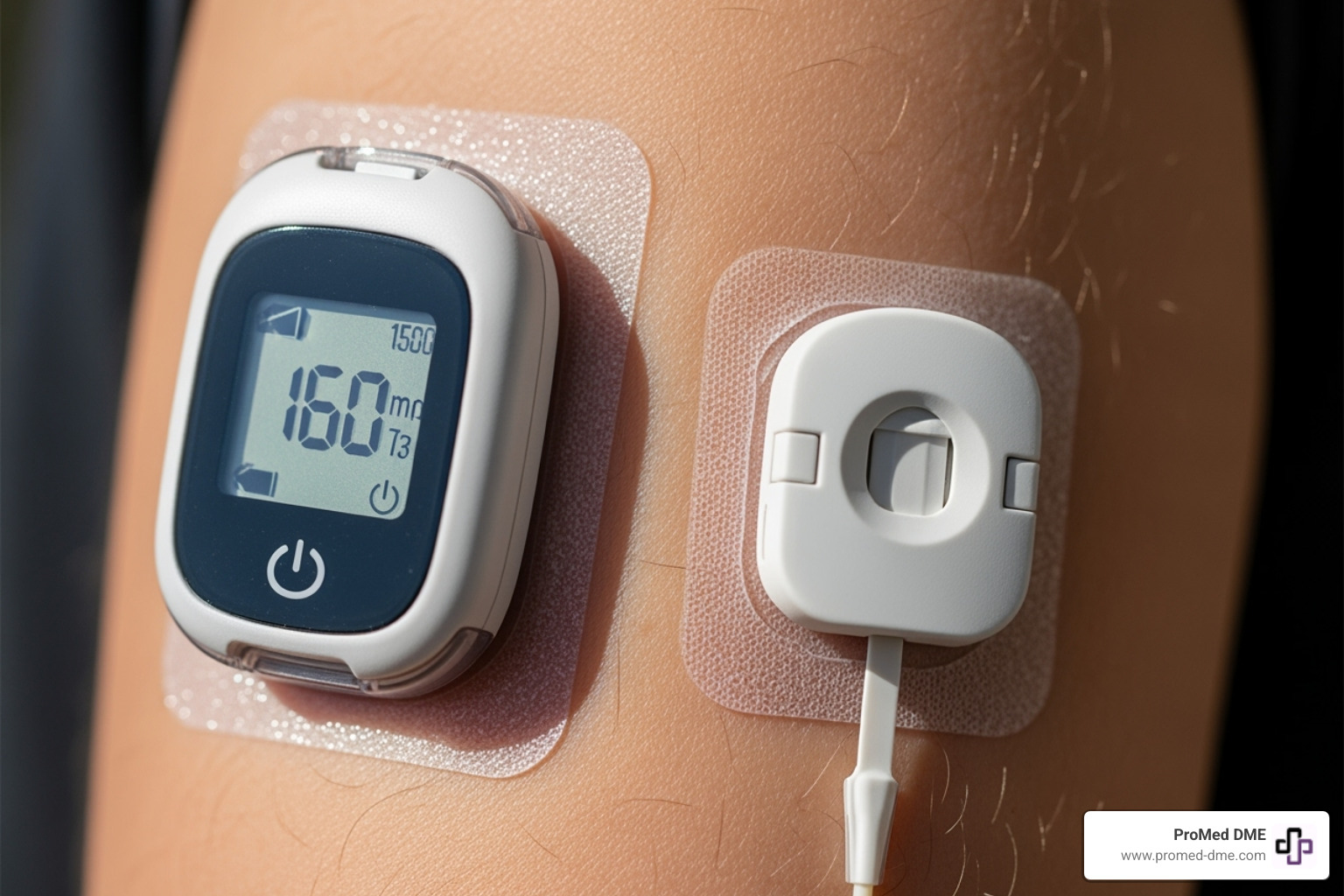All About Low Blood Sugar Levels: Symptoms & Causes

Ever found yourself feeling dizzy out of the blue, experienced a rapid heartbeat, or sudden changes in mood? You might be dealing with low blood sugar levels. Commonly referred to as hypoglycemia, this condition often gets overlooked, with symptoms mistaken as signs of fatigue or stress. Little do many realize, unchecked hypoglycemia can escalate into severe complications, including life-threatening circumstances in some cases.
Low blood sugar levels might seem like a baffling issue, but here at ProMed DME, we’re dedicated to helping you understand it in simple terms, and manage it effectively. Not just limited to those diagnosed with diabetes, hypoglycemia can affect anyone due to a variety of factors - from the types of medication one takes to lifestyle choices.
Before diving deeper into the subject, let's look at a high-level snapshot of what you should know about low blood sugar:
- It occurs when your blood sugar level drops below 70 mg/dL (3.9 mmol/L)
- It affects both, people diagnosed with diabetes and those who are not
- Common causes include certain medications, medical conditions, and lifestyle choices
- Symptoms can range from dizziness and mood swings to severe instances of seizures

Our guide provides a comprehensive overview of what causes low blood sugar levels, the various symptoms you should watch out for, and the necessary steps to take in such situations. Read on to gain a better understanding, and help ensure your health and wellbeing is kept in check.
Understanding Low Blood Sugar Levels
What is Low Blood Sugar (Hypoglycemia)?
Low blood sugar, also known as hypoglycemia, is a medical condition that occurs when your body's glucose levels drop below the normal range. Glucose, a type of sugar, is the main source of energy for your body's cells, and it comes from the food we eat. When its levels fall beneath the safe threshold, specifically below 70 mg/dL (3.9 mmol/L), you have hypoglycemia. This can lead to a range of symptoms, from mild discomfort to severe complications if left untreated.
The Importance of Blood Sugar Levels in the Body
Blood sugar, or glucose, plays a pivotal role in our overall health. It's like the fuel that powers your body's cells, allowing them to carry out their functions effectively. Our body regulates these levels to ensure there's a balance; too high and it can damage nerves, blood vessels, and organs over time, a condition known as hyperglycemia. On the other hand, when blood sugar levels are too low, it can cause immediate complications such as confusion, dizziness, and even unconsciousness. Hence, maintaining healthy blood sugar levels is essential for our wellbeing.
What is Considered a Low Blood Sugar Level?
The standard range for blood sugar levels can vary slightly depending on the individual and their overall health. However, generally speaking, a blood sugar level is considered low, or hypoglycemic, when it falls below 70 mg/dL (3.9 mmol/L). At this point, it's crucial to take action to increase your glucose levels and prevent further health complications.
That these numbers are just a guideline. Each person's body may react differently to low blood sugar levels, and optimal levels can vary. It's always recommended to consult with your healthcare provider to understand what's best for your health.
At ProMed DME, we believe in empowering our clients with accurate and practical knowledge. Understanding what low blood sugar levels are, their importance, and when to take action is pivotal in managing your health effectively. We'll discuss the causes and symptoms of low blood sugar levels, equipping you with the knowledge to prevent and manage this condition.
Causes of Low Blood Sugar Levels
Now that we've established what low blood sugar levels are, let's delve into the reasons behind their occurrence. It's worth noting that a variety of factors, including certain health conditions, medications, and lifestyle habits, can contribute to these fluctuations.
Diabetes and Low Blood Sugar Levels
Diabetes is often associated with high blood sugar levels. However, it's important to understand that people with diabetes, particularly Type 1, can also experience low blood sugar levels. This can occur if too much insulin is administered, not enough carbohydrates are consumed for the amount of insulin taken, or there are unexpected changes in the individual's schedule or physical activity level.
Medications and Low Blood Sugar Levels
Certain medications, including those used to treat diabetes, can lead to low blood sugar levels. Insulin, sulfonylureas, and meglitinides work by helping your pancreas release more insulin into your blood, which can sometimes cause blood glucose levels to drop too low. It's crucial to take these medications as prescribed and monitor your blood glucose levels regularly, especially if you're taking any medication known to lower blood glucose.
Lifestyle Factors Contributing to Low Blood Sugar Levels
Your lifestyle choices play a significant role in managing your blood glucose levels. For instance, an irregular eating schedule or skipping meals can cause your blood glucose to drop. Intense physical activity can also lower your blood glucose levels, and alcohol consumption, especially on an empty stomach, can interfere with your liver's ability to produce glucose, leading to hypoglycemia.
Other Health Conditions and Low Blood Sugar Levels
Certain health conditions can also lead to low blood sugar levels. Illnesses that prevent you from eating enough or absorbing glucose properly can cause your blood glucose to drop. Some hormonal disorders can also cause low blood glucose levels.
In conclusion, low blood sugar levels can be caused by a variety of factors. The key to managing this condition effectively lies in understanding these causes and how they affect your body. At ProMed DME, we are committed to providing reliable solutions like the Dexcom G6 and Dexcom G7, which can alert you when your blood glucose is too low. With the right knowledge and resources, you can successfully manage your blood glucose levels and maintain a healthy lifestyle. In the next section, we'll look at the symptoms of low blood sugar levels and how to recognize them.
Symptoms of Low Blood Sugar Levels
Understanding the symptoms of low blood sugar levels is crucial to managing your health effectively. The symptoms can vary from person to person, and how your body reacts may not be the same as someone else. Here, we'll walk you through the common symptoms, the concept of hypoglycemia unawareness, and what severe symptoms might look like.
Common Symptoms of Low Blood Sugar Levels
When your blood sugar levels drop, your body will often respond with a series of physical and cognitive signs. Common physical symptoms might include a fast heartbeat, shaking, sweating, and a feeling of hunger. On the cognitive side, you might experience nervousness, anxiety, irritability, confusion, and dizziness.
These symptoms are your body's way of alerting you that your blood sugar is too low. For example, the shaking and sweating you might experience are due to an adrenaline rush, your body's "fight or flight" response triggered by low blood sugar levels. Similarly, a fast or irregular heartbeat is a result of your heart preparing to pump more blood to your muscles and organs.
Hypoglycemia Unawareness: When Symptoms are Absent
Sometimes, you might experience low blood sugar levels without displaying any noticeable symptoms. This is known as hypoglycemia unawareness. It makes treating low blood sugar levels early more challenging, increasing the risk of severe lows, which can be dangerous. This is more likely to occur if you've had diabetes for more than 5-10 years, frequently experience low blood sugar, or take certain medications like beta blockers for high blood pressure.
If you find yourself in this category, it's crucial to monitor your blood sugar levels more frequently, especially before engaging in activities like driving or physical exercise.
Severe Symptoms of Low Blood Sugar Levels
As your blood sugar levels continue to drop, you might start experiencing more serious symptoms. These can include feeling weak, having difficulty walking or seeing clearly, acting strange, feeling confused, and even having seizures. Severe low blood sugar is below 54 mg/dL and may make you faint. At this point, you'll likely need someone else's assistance to treat your low blood sugar.
It's important to stress that severe hypoglycemia is life-threatening and needs immediate medical treatment. If left untreated, it can result in a coma or even death.
Recognizing and understanding the symptoms of low blood sugar levels is vital for managing your health effectively. If you notice any signs or changes, don't hesitate to reach out to your healthcare provider or contact us at ProMed DME for advice and support. We're here to help you navigate your health journey with confidence, ensuring you have the knowledge and resources you need.
How to Treat Low Blood Sugar Levels
Having low blood sugar levels can be a daunting experience, but knowing how to handle this situation can make a significant difference in your overall well-being. Let's delve into some practical steps you can take to manage hypoglycemia effectively.
The 15-15 Rule for Treating Low Blood Sugar Levels
When your blood sugar levels fall between 55-69 mg/dL, you can apply the 15-15 rule. This rule suggests consuming 15 grams of carbohydrates, then checking your blood sugar levels after 15 minutes. If your levels remain below your target, repeat the process.
Items that contain approximately 15 grams of carbs include:
- 4 ounces (½ cup) of juice or regular soda.
- 1 tablespoon of sugar, honey, or syrup.
- Hard candies, jellybeans, or gumdrops (check the food label for how much to eat).
- 3-4 glucose tablets or 1 dose of glucose gel.
It takes time for blood sugar levels to rise after eating. So, be patient and give your body time to absorb the carbohydrates.
When to Use Glucagon for Severe Hypoglycemia
For blood sugar levels lower than 55 mg/dL, you need more than just carbohydrates. In such severe hypoglycemia cases, the use of injectable glucagon becomes crucial. Glucagon is a hormone that triggers your liver to release stored glucose into your bloodstream, effectively raising your blood sugar levels.
If someone loses consciousness due to extremely low blood sugar, they should receive a glucagon injection. If they don't regain consciousness within 15 minutes, a second dose may be necessary. It's essential to contact a healthcare professional immediately after a glucagon injection for further medical treatment.
At ProMed DME, we recommend discussing with your healthcare provider about whether you should have a glucagon kit and how and when to use it.
The Role of Medical IDs in Emergencies
One essential tool in managing severe hypoglycemia episodes effectively is a medical ID. This is usually a bracelet or necklace that provides crucial information about your health status. Medical IDs are especially beneficial for those who use insulin, as they can convey critical information during emergencies when you cannot speak for yourself.
Emergency medical personnel are trained to look for a medical ID when caring for someone in need. Traditional IDs are etched with basic health information, and some even include compact USB drives that carry a person's full medical record for use in an emergency.
Managing low blood sugar levels effectively is a key part of managing diabetes. At ProMed DME, we're dedicated to providing you with the knowledge and tools you need to manage your blood sugar levels effectively. From continuous glucose monitoring to personalized advice, we're here to support you every step of the way.
Preventing Low Blood Sugar Levels
Preventing low blood sugar levels is an essential part of managing diabetes. This involves regular monitoring of your blood sugar, making dietary adjustments, staying physically active, and consulting with healthcare providers.
Regular Monitoring of Blood Sugar Levels
Regular monitoring of your blood sugar levels is crucial in preventing hypoglycemia. It's recommended to check your blood sugar before and after meals, before and after exercise, before bed, and during the night after intense exercise. If you’re going through a period of change, such as a new insulin routine or an increase in physical activity, you should check your blood sugar even more frequently.
At ProMed DME, we offer high-quality continuous glucose monitors that can make this process easier and more efficient. These devices can alert you if your blood sugar levels drop too low, even while you're sleeping.
Dietary Adjustments to Prevent Low Blood Sugar Levels
Your diet plays a significant role in managing your blood sugar levels. Consuming regular meals and snacks throughout the day can help keep your blood sugar levels steady. Skipping meals or long periods without eating can cause your blood sugar to drop.
It's also important to balance your insulin dosage with your carbohydrate intake, as taking insulin and not eating right away can lead to hypoglycemia. Consider having a snack before bed if you’re at risk for low blood sugar overnight.
The Importance of Exercise and Physical Activity
Regular physical activity increases the body's sensitivity to insulin and helps it use glucose more efficiently, which can help regulate your blood sugar levels. However, excessive exercise without adequate food intake or insulin can cause your blood sugar levels to drop. It’s recommended to monitor your blood glucose levels before and after exercise to maintain a safe range and prevent hypoglycemia.
Consulting with Healthcare Providers
If you frequently experience symptoms of low blood sugar, or if you're struggling to manage your glucose levels despite your best efforts, it's time to consult with a healthcare provider. They can help identify patterns and adjust your treatment plan to prevent lows by optimizing the timing and amount of your insulin, physical activity, and meals.
At ProMed DME, we're committed to supporting you on your journey to better health. We're here to provide you with the resources, tools, and support you need to manage your blood glucose levels effectively. Don't hesitate to reach out to us. We’re here to help.
Preventing low blood sugar levels isn't just about avoiding discomfort or inconvenience. It's about protecting your health and ensuring you're able to lead a full and active life. Be proactive, stay informed, and stay healthy.
Conclusion
Understanding and managing low blood sugar levels is crucial, especially for individuals with chronic health conditions like diabetes. It's not just about avoiding the discomforting symptoms; it's about safeguarding your overall health and quality of life.
From identifying the common symptoms - such as shakiness, sweating, fast heartbeat, confusion, and fatigue - to knowing the causes, every piece of information can make a massive difference in managing your health effectively. The symptoms may vary from person to person, so be aware of what your body is signaling.
The key to managing low blood sugar levels lies in regular monitoring, immediate treatment, and long-term management. Follow the 15-15 rule for immediate treatment, and remember the role of glucagon for severe hypoglycemia. Regular monitoring of your blood sugar levels using devices like Continuous Glucose Monitors (CGM) can play a significant role in preventing hypoglycemia.
At ProMed DME, we are committed to helping you manage your low blood sugar levels effectively. We provide support, guidance, and top-notch medical products to ensure you have everything you need to maintain your health.
It's essential not to disregard any symptom or irregularity. Early detection and timely treatment can help prevent complications. Be proactive, stay informed, and always consult with your healthcare provider when you notice any changes.
Managing low blood sugar levels doesn't have to be a daunting task. With the right knowledge, resources, and support, you can effectively navigate your way to better health and improved quality of life.
Related Resources & Articles
Stay informed with our informative blog posts.
Discover the ProMed Advantage
& Try Our Products
We offer free shipping and legendary customer service to ensure you receive the
best DME products for your needs.



